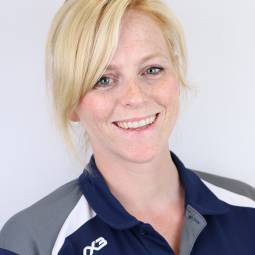
Mrs Kathryn Fishlock
Physiotherapy manager
- Physiotherapy
- Self-pay/Insured
The cause of sporting injuries can be varied, such as:
Whether your injury occurred suddenly or over a period of time, it is important to seek advice as early as possible to avoid impact on your day-to-day routine and your ability to maintain participation in sport. If an injury is ignored, it can often get worse and cause further problems.
Sporting injuries can affect many different parts of the body, depending on the demands of the sport and technique, from tendons and ligaments to bones, cartilage and muscles. Tendons are particularly prone to injury, especially when they have been subjected to a sudden change in training intensity or frequency. This is common when starting a new sport or training programme. The tendon will react by swelling and becoming very painful, a sign that the tendon has been overloaded. If adequate rest and treatment of the tendon is not given, the problem can progress, causing further degeneration within the tendon itself. Your physiotherapy team at St Joseph’s have expert knowledge in the management of tendinopathies.
Other common injuries occur at the elbow and wrist in golf and racquet sports. Assessment of technique and grip size is important to reduce any abnormal forces through the muscles and tendons of the forearm that can become painful when overloaded.
Running injuries are extremely common, especially if you are new to the activity or if you are increasing your distances when training for an event. It is important to gradually increase the duration of runs to avoid such injuries. Common running injuries include lower back pain, ilio-tibial band syndrome, anterior knee pain, and shin splints, achilles tendinopathy and plantar fasciitis. These injuries are commonly seen in runners due to the repetitive nature of the activity. Common symptoms include pain, swelling, difficulty weight bearing and reduced movement of a joint or muscle.
Most injuries resolve with appropriate rest, ice and elevation; however physiotherapy can often help to optimise this healing process with advice on creating the best environment for healing and recovery. Physiotherapists can identify which structure has been injured and help guide you into how to best manage the injury whilst also helping improve pain, any loss of movement in a joint or limb. Physiotherapy can also help guide your progression back to sporting activities appropriately to reduce the risk of re-injury.
At the Centre for Clinical Physiotherapy we offer a wide range of services, knowledge and expertise to effectively treat and manage sporting injuries. Treatments are delivered by highly skilled and experienced physiotherapists who are passionate about delivering a quality service and the best possible results for you.

Our transparent pricing and bespoke packages allow you to pay for the treatments and services you need, when you need them.

Many of our dedicated consultants have partnered with insurance companies to give you peace of mind with your health.
For more information call one of our friendly patient advisors or book online using the button below.